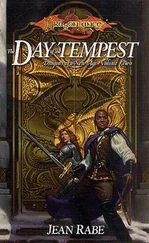Josella saw it first. A dot a little out from the coast, and apparently coming our way, parallel with the shore. We stood up and started to wave. As the dot grew larger, we waved more wildly, and, not very sensibly, shouted at the tops of our voices. The pilot could not have failed to see us there on the open beach had he come on, but that was what he did not do. A few miles short of us he turned abruptly north to pass inland. We went on waving madly, hoping that he might yet catch sight of us. But there was no indecision in the machine’s course, no variation of the engine note. Deliberately and imperturbably it droned away toward the hills.
We towed our arms and looked at one another.
“If it can come once, it can come again,” said Josella sturdily, but not very convincingly.
But the sight of the machine had changed our day for us. It destroyed quite a lot of the resignation we had carefully built up. We had been saying to ourselves that there must be other groups but they wouldn’t be in any better position tan we were, more likely in a worse. But when a helicopter could come sailing in like a sight and sound from the past, it raised more than memories: it suggested that someone somewhere was managing to make out better than we were… Was there a tinge of jealousy there?… And it also made us aware that, lucky as we had been, we were still gregarious creatures by nature.
The restless feeling that the machine left behind destroyed our mood and the lines along which our thoughts had been running. In unspoken agreement, we began to pack up our be-longings, and, each occupied with our thoughts, we made our way back to the half-track and started for home.
We had covered perhaps half the distance back to Shirning when Josella noticed the smoke. At -first sight it might have been a cloud, but as we neared the top of the hilt we could see the gray column beneath the more diffused upper layer. She pointed to it, and looked at me without a word. The only fires we had seen in years had been a few spontaneous outbreaks in later summer. We both knew at once that the plume ahead was rising from the neighborhood of Shirning. I forced the half-track along at a greater speed than it had ever done on the deteriorated roads. We were thrown about inside it, and yet still seemed to be crawling. Josella sat silent all the time, her lips pressed together and her eyes fixed on the smoke. I knew that she was searching for some indication that the source was nearer or farther away; anywhere but at Shirning itself. But the closer we came, the less room there was for doubt. We tore up the final lane quite oblivious of the stings whipping at the vehicle as it passed. Then, at the turn, we were able to see that it was not the house itself but the woodpile that was ablaze.
At the sound of the horn Susan came running out to pull on the rope which opened the gate from a safe distance. She shouted something which was drowned in the rattle of our driving in. Her free hand was pointing, not to the fire, but toward the front of the house. As we ran farther into the yard we could see the reason. Skillfully landed in the middle of out lawn stood the helicopter.
By the time we were out of the half-track a man in a leather jacket and breeches had come cut of the house. He was tall, fair, and sunburned. At first glance II had a feeling I had seen him somewhere before. He waved, and grinned cheerfully as we hurried across.
“Mr. Bill Masen, I presume. My name is Simpson—Ivan Simpson.”
“I remember,” said Josella. “You brought in a helicopter that night at the University Building.”
“That’s right. Clever of you to remember. But just to show you’re not the only one with a memory: you are Josella Playton, author of—”
“You’re quite wrong,” she interrupted him firmly. “I’m Josella Masen, author of David Masen.”
“Ah, yes. I’ve been looking at the original edition, and a very creditable bit of craftsmanship, too, if I may say so.”
“Hold on a bit,” I said. “That fire—”
“it’s safe enough. Blowing away from the house. Though I’m afraid most of your stock of wood has gone up.”
“What happened?”
”That was Susan. She didn’t mean me to miss the place. When she heard my engine she grabbed a flame thrower and bounded out to start a signal as quickly as she could. The woodpile was handiest—no one could have missed what she did to that.”
We went inside and joined the others.
“By the way,” Simpson said to me, “Michael said I was to be sure to start off with his apologies.”
“To me?” I said, wondering.
“You were the only one who saw any danger in the triffids, and he didn’t believe you.”
“But—do you mean to say you knew I was here?”
“We found out very roughly your probable location a few days ago—from a fellow we all have cause to remember: one Coker.”
“So Coker came through too,” I said. “After the shambles I saw at Tynsham, I’d an idea the plague might have got him.”
Later on, when we had had a meal and produced our best brandy, we got the story out of him.
When Michael Beadley and his party had gone on, leaving Tynsham to the mercies and principles of Miss Durrant, they had not made for Beaminster, nor anywhere near it. They had gone northeast, into Oxfordshire. Miss Durrant’s misdirection to us must have been deliberate, for Beaminster had never been mentioned.
They bad found there an estate which seemed at first to offer the group all it required, and no doubt they could have entrenched themselves there as we had entrenched ourselves at Shirning; but as the menace of the triffids increased, the disadvantages of the place became more obvious. In a year bath Michael and the Colonel were highly dissatisfied with the longer-term prospects there. A great deal of work had already been put into the place, but by the end of the second summer there was general agreement that it would be better to cut their losses. To build a community they had to think in terms of years—a considerable number of years. They also had to bear in mind that the longer they delayed, the more difficult any move would be. What they needed was a place where they would have room to expand and develop: an area with natural defenses, which, once it had been cleared of exit-lids, could economically be kept clear of them. Where they now were a high proportion of their labor was occupied with maintaining fences. And as their numbers increased, the length of fence line would have to be increased. Clearly, the best sell-maintaining defense line would be water. To that end they had held a discussion on the relative merits of various islands. It had been chiefly climate that had decided them in favor of the Isle of Wight, despite some misgivings over the area that would have to be cleared. Accordingly, in the following March they had packed up again and moved on.
“When we got there,” Ivan said, “the triffids seemed even thicker than where we’d left. Na sooner had we begun to set-tie ourselves into a big country house near Godshill than they started collecting along the walls in thousands. We let ‘em conic for a couple of weeks or so, then we went for ‘em with the flame throwers.
“After we’d wiped that lot out, we let them accumulate again, and then we blitzed ‘em once more—and so on. We could afford to do it properly there, because once we were clear of them we’d not need to use the throwers any more. There could only be a limited number on the island, and the more of them that came round us to be wiped out, the better we liked it.
“We bad to do it a dozen times before there was any appreciable effect. All round the walls we had a belt of charred stumps before they began to get shy. There were a devil of a lot more of them than we had expected.”
Читать дальше











